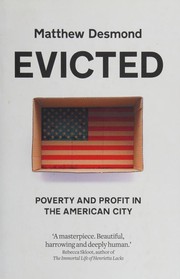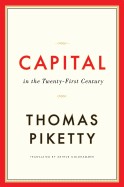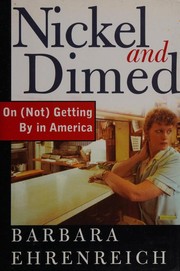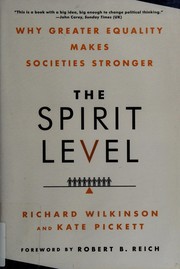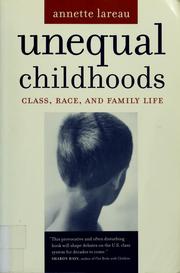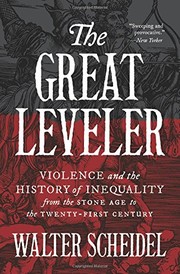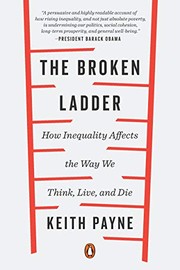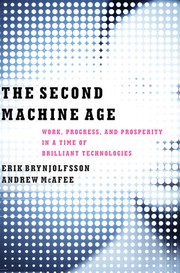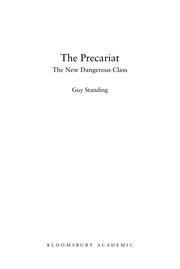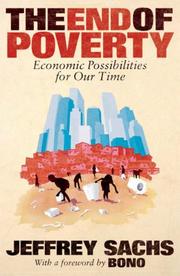Are you interested in understanding the complex issues surrounding social inequality? Dive into the world of social justice, discrimination, and privilege with these 20 best books about social inequality. From eye-opening nonfiction to captivating fiction, these books offer profound insights and perspectives on the challenges faced by marginalized communities. Whether you’re a student, activist, or simply curious about the topic, these books will expand your understanding of social inequality and inspire meaningful conversations.
Contents
- 1 20 Best Books About Social Inequality
- 2 Evicted: Poverty and Profit in the American City
- 3 The New Jim Crow: Mass Incarceration in the Age of Colorblindness
- 4 Capital in the Twenty-First Century
- 5 Nickel and Dimed: On (Not) Getting By in America
- 6 The Color of Law: A Forgotten History of How Our Government Segregated America
- 7 Hillbilly Elegy: A Memoir of a Family and Culture in Crisis
- 8 The Spirit Level: Why Greater Equality Makes Societies Stronger
- 9 The Price of Inequality: How Today’s Divided Society Endangers Our Future
- 10 The Divide: American Injustice in the Age of the Wealth Gap
- 11 Unequal Childhoods: Class, Race, and Family Life
- 12 The Great Leveler: Violence and the History of Inequality from the Stone Age to the Twenty-First Century
- 13 The Age of Surveillance Capitalism: The Fight for a Human Future at the New Frontier of Power
- 14 The Broken Ladder: How Inequality Affects the Way We Think, Live, and Die
- 15 The Unwinding: An Inner History of the New America
- 16 The Second Machine Age: Work, Progress, and Prosperity in a Time of Brilliant Technologies
- 17 The Tyranny of Merit: What’s Become of the Common Good?
- 18 The Age of Responsibility: Luck, Choice, and the Welfare State
- 19 The Undocumented Americans
- 20 The Precariat: The New Dangerous Class
- 21 The End of Poverty: Economic Possibilities for Our Time
- 22 Conclusion
- 23
- 24 Discover Best Pearl Harbor Books: 20 Key Titles, 2024 Updated
- 25 Books about Kindness For Kids: 2024's Best Titles
- 26 Books about Apples For Toddlers: 2024's Best Titles
20 Best Books About Social Inequality
Evicted: Poverty and Profit in the American City
by Matthew Desmond
Evicted: Poverty and Profit in the American City by Matthew Desmond is a groundbreaking book on social inequality that takes readers deep into the lives of families struggling to make ends meet in Milwaukee. Through vivid storytelling and meticulous research, Desmond exposes the devastating impact of eviction on individuals and communities, highlighting the intersecting forces of poverty, housing policy, and economic exploitation. This eye-opening book about social inequality sheds light on the cycle of poverty and the profit-driven nature of the housing market, offering a powerful critique of systemic injustice. Desmond’s work prompts readers to confront the harsh realities faced by the most vulnerable members of society and challenges us to reexamine our perceptions of poverty and homelessness. Evicted is a must-read for anyone seeking to understand the complex dynamics of poverty and housing in America.
The New Jim Crow: Mass Incarceration in the Age of Colorblindness
by Michelle Alexander
The New Jim Crow: Mass Incarceration in the Age of Colorblindness by Michelle Alexander is a groundbreaking book on social inequality that examines the systemic racism embedded in the US criminal justice system. Alexander argues that the mass incarceration of black men has created a new form of racial control, akin to the Jim Crow laws of the past. She exposes how the War on Drugs has disproportionately targeted and punished African American communities, leading to a cycle of poverty and disenfranchisement. Through meticulous research and compelling storytelling, Alexander sheds light on the insidious ways in which racism operates in the modern era, despite the supposed colorblindness of the legal system. The New Jim Crow is a powerful and eye-opening critique of social inequality, and a call to action for justice and equality for all.
Capital in the Twenty-First Century
by Thomas Piketty
Capital in the Twenty-First Century is a groundbreaking book on social inequality by Thomas Piketty. It offers a comprehensive analysis of wealth and income inequality over the past few centuries, and its implications for the future. Piketty’s research is based on extensive historical data from various countries, and he argues that the concentration of wealth in the hands of a few is a natural outcome of capitalism, unless it is actively counteracted by government intervention. The book presents thought-provoking insights on the dynamics of economic inequality and the potential consequences for society. With its meticulous research and compelling arguments, Capital in the Twenty-First Century has sparked discussions and debates worldwide, making it a must-read for anyone interested in understanding the complexities of modern economies and societies.
Nickel and Dimed: On (Not) Getting By in America
by Barbara Ehrenreich
Nickel and Dimed: On (Not) Getting By in America by Barbara Ehrenreich is a thought-provoking book about social inequality. In this eye-opening work, Ehrenreich explores the struggles of low-wage workers in America by immersing herself in their world. She takes on various low-paying jobs, from waitressing to cleaning, and reveals the harsh reality of trying to make ends meet on minimum wage. Through her experiences, Ehrenreich sheds light on the difficulties faced by millions of working-class Americans, exposing the systemic issues that perpetuate poverty and inequality. The book offers a powerful critique of the American labor system and challenges readers to confront the pervasive injustices that exist within society. Nickel and Dimed is a compelling and informative read that provides valuable insight into the complex dynamics of social inequality.
The Color of Law: A Forgotten History of How Our Government Segregated America
by Richard Rothstein
The Color of Law is a compelling book on social inequality that delves into the forgotten history of how government policies systematically segregated America. Author Richard Rothstein meticulously examines the role of federal, state, and local governments in creating and enforcing racial segregation in housing. Through extensive research and analysis, Rothstein reveals how discriminatory practices such as redlining, restrictive covenants, and urban renewal programs perpetuated social inequality and denied African Americans the opportunity to build wealth and access to better opportunities. This eye-opening and thought-provoking book about social inequality challenges the conventional narrative of housing segregation and sheds light on the lasting impact of these policies on American society. The Color of Law is a must-read for anyone interested in understanding the deep-rooted issues of social inequality and its historical context.
Hillbilly Elegy: A Memoir of a Family and Culture in Crisis
by J.D. Vance
Hillbilly Elegy: A Memoir of a Family and Culture in Crisis by J.D. Vance is a powerful and raw account of growing up in a working-class family in Appalachia. Vance’s memoir delves into the complexities of the American Dream and the impact of social inequality on his community. The book provides an intimate look at the struggles and challenges faced by those living in poverty, and the cultural dynamics that contribute to social inequality. Through his personal experiences, Vance sheds light on the deep-rooted issues of addiction, poverty, and lack of opportunity that plague many communities. Hillbilly Elegy is a thought-provoking and eye-opening exploration of social inequality in America, and a must-read for anyone seeking to understand the complexities of class and culture in the United States.
The Spirit Level: Why Greater Equality Makes Societies Stronger
by Richard Wilkinson and Kate Pickett
The Spirit Level: Why Greater Equality Makes Societies Stronger is a groundbreaking book on social inequality that challenges the conventional wisdom about the drivers of societal well-being. Authors Richard Wilkinson and Kate Pickett present compelling evidence that more equal societies tend to be healthier, happier, and more cohesive, while those with greater income disparities experience higher levels of crime, mental illness, and other social ills. Through a comprehensive analysis of data from around the world, the authors make a compelling case for the detrimental effects of social inequality and the benefits of a more equitable distribution of wealth. This thought-provoking book about social inequality offers a fresh perspective on the impact of economic disparity on human societies and provides valuable insights for policymakers, scholars, and concerned citizens alike.
The Price of Inequality: How Today’s Divided Society Endangers Our Future
by Joseph E. Stiglitz
The Price of Inequality: How Today’s Divided Society Endangers Our Future by Joseph E. Stiglitz is a compelling book on social inequality that delves into the causes and consequences of economic disparity in modern society. Stiglitz, a Nobel Prize-winning economist, offers a thought-provoking analysis of the widening gap between the rich and the poor, and the detrimental effects it has on the economy and society as a whole. Drawing on extensive research and real-world examples, Stiglitz argues that social inequality is not only unjust, but also undermines the foundation of a healthy and prosperous society. With a compelling narrative and persuasive arguments, this social inequality book sheds light on the urgent need to address the root causes of inequality for the betterment of our future.
The Divide: American Injustice in the Age of the Wealth Gap
by Matt Taibbi
The Divide: American Injustice in the Age of the Wealth Gap by Matt Taibbi is a powerful book on social inequality that delves into the stark divide between the haves and the have-nots in America. Taibbi examines how the justice system favors the wealthy and powerful while punishing the poor and marginalized. Through in-depth research and compelling storytelling, he sheds light on the systemic injustices that perpetuate this wealth gap, from Wall Street to the streets of America. Taibbi’s book about social inequality is a call to action, urging readers to confront the deep-rooted issues that perpetuate this divide and to fight for a more equitable society. With sharp analysis and gripping narratives, The Divide is a must-read for anyone seeking to understand and address the pressing issue of social inequality in America.
Unequal Childhoods: Class, Race, and Family Life
by Annette Lareau
Unequal Childhoods: Class, Race, and Family Life by Annette Lareau is a compelling exploration of the impact of social inequality on children’s upbringing. The book delves into the lives of families from different social classes and racial backgrounds, revealing how these factors shape children’s experiences and opportunities. Lareau’s in-depth research provides a nuanced understanding of how social inequality affects family dynamics, parenting styles, and children’s access to resources. Through vivid storytelling and insightful analysis, Unequal Childhoods sheds light on the complex ways in which class and race intersect to create unequal childhoods. This eye-opening book offers valuable insights for anyone interested in understanding and addressing social inequality in contemporary society.
The Great Leveler: Violence and the History of Inequality from the Stone Age to the Twenty-First Century
by Walter Scheidel
The Great Leveler by Walter Scheidel is a groundbreaking book about social inequality that delves into the history of wealth and power disparities from the Stone Age to the present day. Scheidel argues that throughout history, only violent shocks such as pandemics, wars, and revolutions have significantly reduced inequality. He presents compelling evidence to support this claim, drawing on a wide range of historical and anthropological sources. Scheidel’s analysis challenges conventional thinking about the causes and persistence of inequality, making a thought-provoking contribution to the ongoing debate about economic and social disparities. The book on social inequality is a must-read for anyone interested in understanding the roots of inequality and its potential remedies.
The Age of Surveillance Capitalism: The Fight for a Human Future at the New Frontier of Power
by Shoshana Zuboff
The Age of Surveillance Capitalism delves into the impact of technology on society, highlighting the rise of surveillance capitalism and its implications for individual autonomy and social inequality. Shoshana Zuboff explores how tech companies have capitalized on personal data, creating a system that commodifies human behavior and erodes privacy. This thought-provoking book examines the power dynamics at play in the digital age and raises important questions about the future of humanity. Zuboff’s insightful analysis sheds light on the ways in which surveillance capitalism perpetuates social inequities, making it a must-read for anyone interested in understanding the complex intersection of technology, power, and social justice.
The Broken Ladder: How Inequality Affects the Way We Think, Live, and Die
by Keith Payne
The Broken Ladder by Keith Payne is a thought-provoking book on social inequality that delves into the impact of inequality on our lives. Payne explores how the perception of status and inequality affects the way we think, behave, and even our health. Through engaging storytelling and compelling research, the author demonstrates how social inequality influences our decision-making, relationships, and well-being. The book offers a fascinating insight into the psychological and social effects of inequality, shedding light on the ways it shapes our lives and communities. With its powerful message and accessible writing, The Broken Ladder is a must-read for anyone interested in understanding the far-reaching consequences of social inequality.
The Unwinding: An Inner History of the New America
by George Packer
The Unwinding: An Inner History of the New America by George Packer is a compelling book on social inequality in America. Through a series of in-depth profiles and narratives, Packer delves into the lives of ordinary Americans who have been impacted by the economic and social changes of the past few decades. The book explores the unraveling of the American dream, as well as the widening gap between the haves and the have-nots. Packer’s vivid storytelling and meticulous research paint a vivid picture of a country in flux, grappling with the consequences of globalization, technological advancements, and political upheaval. The Unwinding is a poignant and thought-provoking social inequality book that sheds light on the challenges faced by individuals and communities across the United States.
The Second Machine Age: Work, Progress, and Prosperity in a Time of Brilliant Technologies
by Erik Brynjolfsson and Andrew McAfee
The Second Machine Age by Erik Brynjolfsson and Andrew McAfee explores the impact of rapid technological advancements on our economy, society, and the future of work. The authors delve into how digital technologies are transforming industries, creating new opportunities, and reshaping the nature of work. They also address the potential for increased productivity and economic prosperity, but also highlight the challenges of adapting to these changes, including the potential for widening disparities and social stratification. This thought-provoking book offers insights into the potential for both progress and social inequality in a time of remarkable technological advancements, making it a must-read for anyone interested in understanding the implications of the digital revolution.
The Tyranny of Merit: What’s Become of the Common Good?
by Michael J. Sandel
The Tyranny of Merit: What’s Become of the Common Good? by Michael J. Sandel is a thought-provoking book on social inequality that challenges the notion of meritocracy and its impact on society. Sandel delves into the consequences of the meritocratic system and how it has widened the gap between the winners and losers in society. He argues that the relentless focus on individual success has led to a disregard for the common good, creating a society where social mobility is limited and those who are less fortunate are left behind. This book about social inequality raises important questions about the fairness of meritocracy and its role in shaping our society. Sandel’s insightful analysis invites readers to reconsider their understanding of merit and the implications it has on the common good.
The Age of Responsibility: Luck, Choice, and the Welfare State
by Yascha Mounk
The Age of Responsibility: Luck, Choice, and the Welfare State by Yascha Mounk is a thought-provoking book on social inequality. Mounk explores the complex interplay between luck and personal responsibility in shaping individuals’ life outcomes, and the role of the welfare state in mitigating social inequality. Drawing on a wide range of examples and research, Mounk challenges conventional wisdom about the relationship between individual choice and social outcomes. He argues that while personal responsibility is important, luck and systemic factors also play a significant role in determining success and failure. This engaging and timely book offers a fresh perspective on the debate surrounding social inequality, making it essential reading for anyone interested in understanding the dynamics of modern societies and the role of government in promoting fairness and opportunity.
The Undocumented Americans
by Karla Cornejo Villavicencio
The Undocumented Americans by Karla Cornejo Villavicencio is a powerful and poignant exploration of the lives of undocumented immigrants in the United States. Through a collection of personal narratives, Villavicencio sheds light on the experiences of undocumented individuals and their struggles with the immigration system, discrimination, and the pursuit of the American dream. This book on social inequality presents a raw and honest portrayal of the challenges faced by undocumented Americans, offering a humanizing perspective on a often misunderstood community. Villavicencio’s storytelling is both empathetic and eye-opening, providing readers with a deeper understanding of the complexities of undocumented life in America. The Undocumented Americans is a timely and important social inequality book that amplifies the voices of those often marginalized in society.
The Precariat: The New Dangerous Class
by Guy Standing
The Precariat: The New Dangerous Class by Guy Standing is a thought-provoking book about social inequality that delves into the growing precariousness and insecurity experienced by a significant portion of the global population. Standing introduces the concept of the “precariat,” a class characterized by unstable employment, lack of social protection, and vulnerability to exploitation. This insightful book on social inequality explores the causes and consequences of this phenomenon, highlighting the impact on individuals, families, and society at large. Standing’s compelling analysis sheds light on the systemic issues that perpetuate social inequality and offers thought-provoking ideas for addressing the challenges faced by the precariat. This is a must-read for anyone interested in understanding the complexities of contemporary labor markets and the far-reaching implications of social inequality.
The End of Poverty: Economic Possibilities for Our Time
by Jeffrey D. Sachs
The End of Poverty: Economic Possibilities for Our Time by Jeffrey D. Sachs is a thought-provoking book on social inequality that offers a comprehensive analysis of the root causes of poverty and provides practical solutions for addressing this global issue. Sachs, an expert in economics and sustainable development, presents a compelling argument for the need to address extreme poverty through targeted interventions and global cooperation. Drawing on his extensive experience in the field, he outlines a roadmap for achieving economic prosperity and social equality for all. This book about social inequality is a must-read for anyone interested in understanding the complex dynamics of poverty and seeking to make a positive impact on the world.
Conclusion
As we conclude our exploration of the 20 best books about Social Inequality, it’s clear that these powerful works offer valuable insights into the complex and pervasive issues surrounding inequality. From thought-provoking analysis to personal narratives, these books shed light on the systemic challenges facing our society. Whether you’re seeking a deeper understanding of social injustice or looking for inspiration to drive positive change, these books are essential reads for anyone passionate about addressing inequality.
Which Social Inequality book is best?
The best book on Social Inequality can vary with personal preference, but three widely recommended titles are:
- Evicted: Poverty and Profit in the American City by Matthew Desmond,
- The New Jim Crow: Mass Incarceration in the Age of Colorblindness by Michelle Alexander,
- Capital in the Twenty-First Century by Thomas Piketty.
Each offers valuable insights and could be a great starting point.
What are the best books to learn about Social Inequality?
For those looking to learn about Social Inequality, there is a wealth of literature that can provide a comprehensive understanding of the subject. Some of the most highly recommended books include:
- Evicted: Poverty and Profit in the American City by Matthew Desmond,
- The New Jim Crow: Mass Incarceration in the Age of Colorblindness by Michelle Alexander,
- Capital in the Twenty-First Century by Thomas Piketty,
- Nickel and Dimed: On (Not) Getting By in America by Barbara Ehrenreich,
- The Color of Law: A Forgotten History of How Our Government Segregated America by Richard Rothstein,
- Hillbilly Elegy: A Memoir of a Family and Culture in Crisis by J.D. Vance,
- The Spirit Level: Why Greater Equality Makes Societies Stronger by Richard Wilkinson and Kate Pickett,
- The Price of Inequality: How Today’s Divided Society Endangers Our Future by Joseph E. Stiglitz,
- The Divide: American Injustice in the Age of the Wealth Gap by Matt Taibbi,
- Unequal Childhoods: Class, Race, and Family Life by Annette Lareau
These books offer a range of perspectives on Social Inequality, covering various aspects and approaches to the subject.
What are the best books on Social Inequality?
The best books on Social Inequality include:
- Evicted: Poverty and Profit in the American City by Matthew Desmond,
- The New Jim Crow: Mass Incarceration in the Age of Colorblindness by Michelle Alexander,
- The Great Leveler: Violence and the History of Inequality from the Stone Age to the Twenty-First Century by Walter Scheidel,
- The Age of Surveillance Capitalism: The Fight for a Human Future at the New Frontier of Power by Shoshana Zuboff,
- The Price of Inequality: How Today’s Divided Society Endangers Our Future by Joseph E. Stiglitz,
- Hillbilly Elegy: A Memoir of a Family and Culture in Crisis by J.D. Vance.
Each offers unique insights into the subject. While these books on the topic of Social Inequality are highly regarded, it’s important to note that any list of ‘best’ books is subjective and reflects a range of opinions.
What are the best Social Inequality books of all time?
Choosing the best Social Inequality books of all time can vary depending on who you ask, but seven titles that are often celebrated include
- Evicted: Poverty and Profit in the American City by Matthew Desmond,
- The New Jim Crow: Mass Incarceration in the Age of Colorblindness by Michelle Alexander,
- The Color of Law: A Forgotten History of How Our Government Segregated America by Richard Rothstein,
- The Price of Inequality: How Today’s Divided Society Endangers Our Future by Joseph E. Stiglitz,
- Unequal Childhoods: Class, Race, and Family Life by Annette Lareau,
- The Age of Surveillance Capitalism: The Fight for a Human Future at the New Frontier of Power by Shoshana Zuboff,
- and The Great Leveler: Violence and the History of Inequality from the Stone Age to the Twenty-First Century by Walter Scheidel.
Each of these books has made a significant impact in the field of Social Inequality and continues to be influential today.

